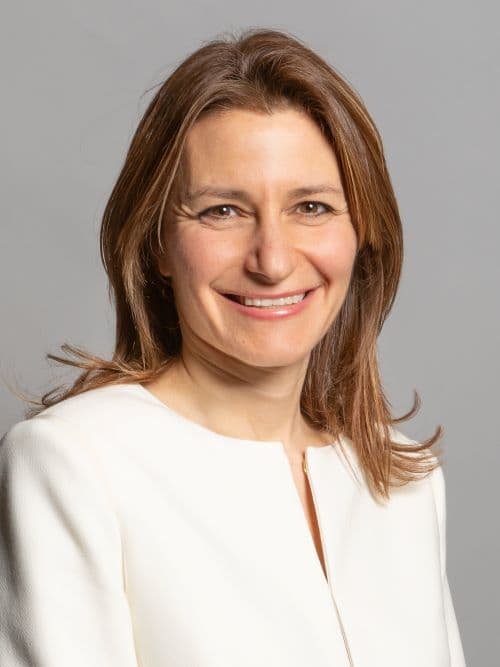Minister sets out government tax agenda
The Financial Secretary Lucy Frazer spoke of fairness, the ‘tax gap’, supporting enterprise, skills and R&D and tax modernization, in a keynote speech to Bright Blue’s conference on Tax Reform in the 2020s, on Wednesday 27 April.
Frazer (photographed below thanks to Parliament UK) opened her speech by thanking staff at HMRC for their ‘heroic efforts’ during the last two years of the pandemic.
Separately, on the Ukraine war, she said she is proud to withdraw cooperation with Russia on sharing tax information, delist the Moscow stock exchange and make it easier for those who want to help send humanitarian aid through customs to Ukraine. On her speech’s theme of fairness, she said businesses often demonstrate fairness such as multinationals shutting down operations in Russia, and when companies have repaid money they received from the furlough scheme.

Frazer was keen to say the tax burden on individuals specifically is forecast to be the lowest in the G7 because of ‘generous ‘allowances on income tax and ‘relatively moderate’ rates for both income tax and national insurance contributions. She claimed ‘we have a highly progressive tax system’ because the top one per cent of income taxpayers are projected to have contributed 28 per cent of all income tax in 2021-22, up from 25 per cent a decade earlier. And the top five per cent paid about 50 per cent of all income tax, up from 43 per cent over the same timeframe. The Government’s goal is both to reform and reduce taxes, such as cutting and reforming taxes in capital, people and ideas, to create the conditions for private sector-led growth and share the proceeds of growth fairly through cuts to personal taxes.
The Laffer Curve deserves our scrutiny and our consideration and ‘should absolutely be a part of the debate’, she said, but she noted that the IFS had said that “the shape of the Laffer Curve, and the peak of where the Laffer Curve is, will be different for every bit of every tax and in every different circumstance”.
The minister pointed to a long-term downward trend in the ‘tax gap’, saying one reason is that in 10 years the Government has introduced over 150 measures to tackle tax avoidance, evasion and other forms of non-compliance. But the tax gap is ‘still too wide’ and that is why the Government, since last year, introduced an additional 20 measures to tackle tax avoidance, evasion and non-compliance – forecast to raise an estimated £6.3 billion over the next five years - including implementing Making Tax Digital (MTD) and provided almost £300 million for HMRC. MTD will reduce taxpayer mistakes, and therefore the Exchequer losses resulting from them, but it also acts as a ‘catalyst for businesses to become more digital’, she claimed.
The Government is committed to carbon pricing as one of the most efficient tools for decarbonisation because it makes sure that polluters pay, the Financial Secretary said.
Business investment has been a long-standing weakness in the UK, she admitted, but companies are benefiting from the ‘super deduction’. Our challenge now is to find the most effective way to reduce taxes on investment while ensuring value for the taxpayer.
She wants to examine whether the Apprenticeship Levy is doing enough to incentivise businesses to invest in the right kinds of training. “The truth is that not enough companies are taking full advantage of the Levy. So, we’re helping companies to not only invest in apprenticeships across their own workforce but to also transfer levy funds to support other smaller firms, benefitting local areas and the wider economy,” she said.
The aim of the review of R&D tax reliefs is to ensure that the UK remains a competitive location for world-class research and announcements on next steps to come in the Autumn. Companies tell us that reliefs are a critical enabler of their R&D, improving their cash flow and enabling them to reinvest more in developing new ideas each year, she said.
On Brexit, she said the Government will end the special status of EU law in our legal framework, giving the UK the freedom to more easily amend or remove outdated EU law ‘removing £1 billion of red-tape for business and improving regulation’.
She wants to harness technology to deliver a ‘fully digital tax system that operates closer to real time’. She is looking forward to Single Customer Account which, she says, will make it easier for taxpayers to access HMRC, subscribe to digital services, communicate through tools such as web chat, and receive prompts and support to help them get their taxes right first time.
The speech is here.
